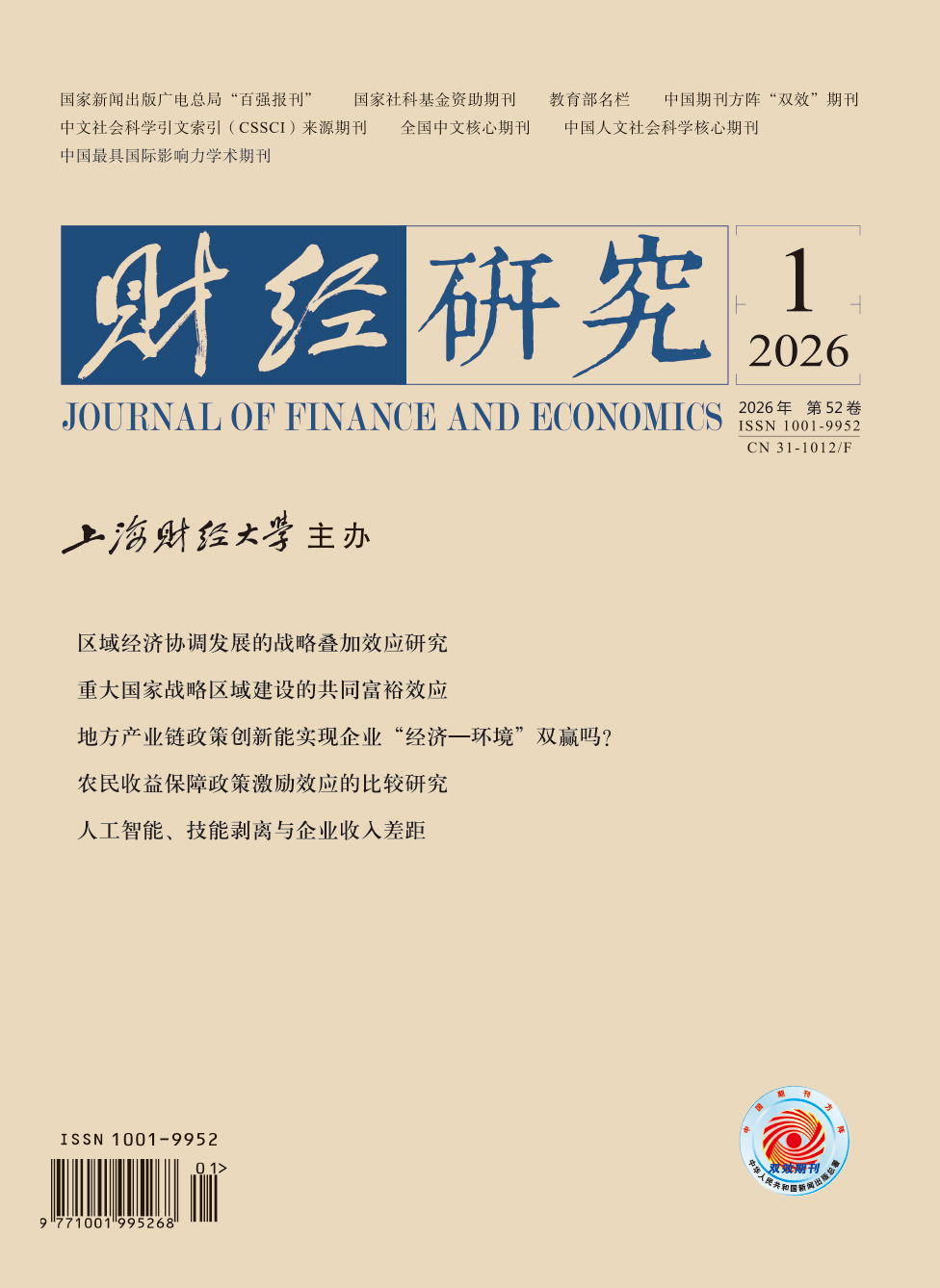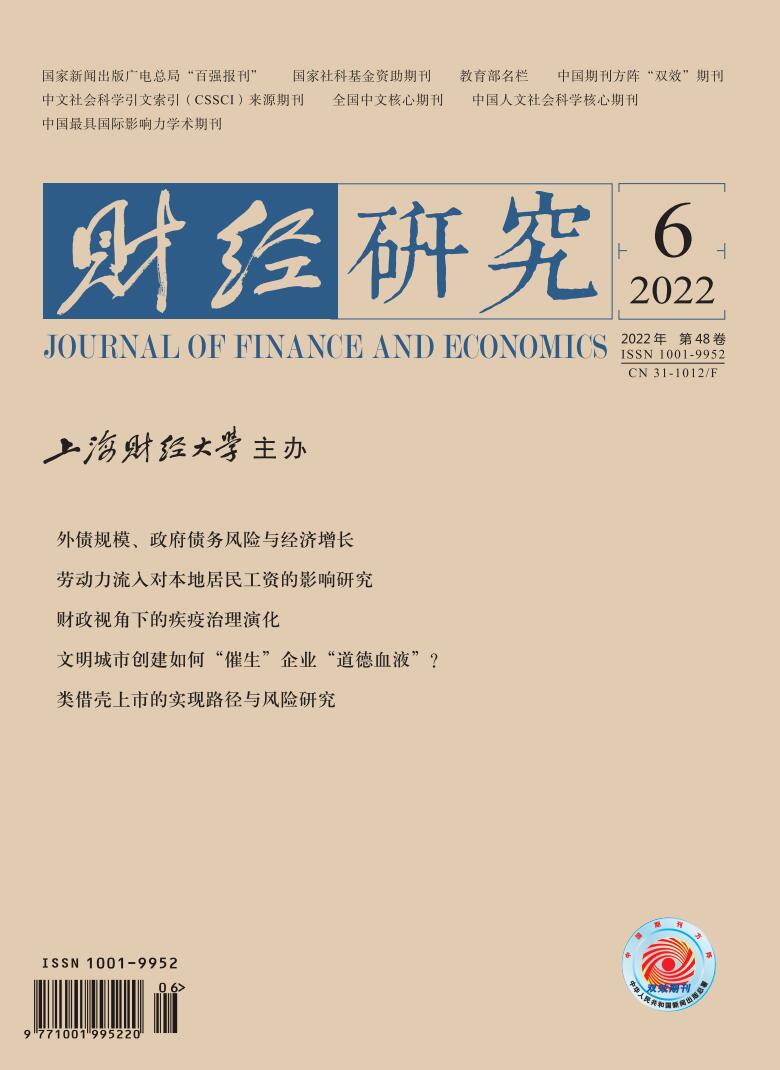文章探讨了我国省与市县政府间的税收分成限制还是促进了集团异地发展。税收分成影响下的税收竞争可能以税负和税基实现,若政府更倾向于增加企业税负,则集团异地发展更多;若政府更倾向于争取税基,则会限制税基外流,集团异地发展更少。文章以手工收集的市县政府企业所得税占比来衡量税收分成,以上市公司异地子公司比例来衡量集团异地发展情况,检验了税收分成对集团异地发展的两种影响哪一种占优。研究发现,税收分成比例越高,集团异地发展越少,这证实了税收分成下的税基竞争,而非税负竞争。但在途径上,地方政府以选择性征管来留住税基,对异地发展的集团进行了惩罚式征税。税收分成增加了异地发展较多的集团税收,而没有增加异地发展较少的集团税收。区分母子公司税收发现,这种选择性征管主要体现在母公司税收上,而在子公司税收上则没有体现。文章从税收分成视角拓展了税收影响集团异地发展的相关研究,还从选择性税收征管路径拓展了“拉弗曲线”差异化应用,研究结论为我国税负公平的税收制度优化和供给侧改革的减税降费政策执行提供了参考。
税收分成下的企业集团异地发展
摘要
参考文献
1 曹春方,刘秀梅,贾凡胜. 向家乡投资:信息、熟悉还是代理问题?[J]. 管理世界,2018,(5):107−119. DOI:10.3969/j.issn.1002-5502.2018.05.009
2 曹春方,夏常源,钱先航. 地区间信任与集团异地发展−基于企业边界理论的实证检验[J]. 管理世界,2019,(1):179−191. DOI:10.3969/j.issn.1002-5502.2019.01.012
10 吕冰洋,聂辉华. 弹性分成:分税制的契约与影响[J]. 经济理论与经济管理,2014,(7):43−50. DOI:10.3969/j.issn.1000-596X.2014.07.005
12 潘红波,余明桂. 集团内关联交易、高管薪酬激励与资本配置效率[J]. 会计研究,2014,(10):20−27. DOI:10.3969/j.issn.1003-2886.2014.10.003
22 周黎安. 转型中的地方政府: 官员激励与治理[M]. 上海: 格致出版社, 2008.
24 Akcigit U,Baslandze S,Stantcheva S. Taxation and the international mobility of inventors[J]. American Economic Review,2016,106(10): 2930−2981. DOI:10.1257/aer.20150237
25 Bolton P, Dewatripont M. Contract theory[M]. Cambridge: MIT Press, 2005.
26 Brennan M J,Maksimovics V,Zechner J. Vendor financing[J]. The Journal of Finance,1988,43(5): 1127−1141. DOI:10.1111/j.1540-6261.1988.tb03960.x
27 Bucovetsky S,Haufler A. Tax competition when firms choose their organizational form:Should tax loopholes for multinationals be closed?[J]. Journal of International Economics,2008,74(1): 188−201. DOI:10.1016/j.jinteco.2007.06.001
28 Chen S P,Chen X,Cheng Q,et al. Are family firms more tax aggressive than non-family firms?[J]. Journal of Financial Economics,2010,95(1): 41−61. DOI:10.1016/j.jfineco.2009.02.003
29 Claessens S,Fan J P H,Lang L H P. The benefits and costs of group affiliation:Evidence from East Asia[J]. Emerging Markets Review,2006,7(1): 1−26. DOI:10.1016/j.ememar.2005.08.001
30 Erel I,Liao R C,Weisbach M S. Determinants of cross-border mergers and acquisitions[J]. The Journal of Finance,2012,67(3): 1045−1082. DOI:10.1111/j.1540-6261.2012.01741.x
31 Giannetti M,Burkart M,Ellingsen T. What you sell is what you lend? Explaining trade credit contracts[J]. The Review of Financial Studies,2011,24(4): 1261−1298. DOI:10.1093/rfs/hhn096
32 Gupta S,Newberry K. Determinants of the variability in corporate effective tax rates:Evidence from longitudinal data[J]. Journal of Accounting and Public Policy,1997,16(1): 1−34. DOI:10.1016/S0278-4254(96)00055-5
33 Holmstrom B. Moral hazard in teams[J]. The Bell Journal of Economics,1982,13(2): 324−340. DOI:10.2307/3003457
34 Javorcik B S,Wei S J. Corruption and cross-border investment in emerging markets:Firm-level evidence[J]. Journal of International Money and Finance,2009,28(4): 605−624. DOI:10.1016/j.jimonfin.2009.01.003
36 Khanna T,Yafeh Y. Business groups in emerging markets:Paragons or parasites?[J]. Journal of Economic Literature,2007,45(2): 331−372. DOI:10.1257/jel.45.2.331
37 Kim K A,Limpaphayom P. Taxes and firm size in pacific-basin emerging economies[J]. Journal of International Accounting,Auditing and Taxation,1998,7(1): 47−68. DOI:10.1016/S1061-9518(98)90005-2
38 Kleven H J,Landais C,Saez E. Taxation and international migration of superstars:Evidence from the European football market[J]. American Economic Review,2013,103(5): 1892−1924. DOI:10.1257/aer.103.5.1892
40 Masulis R W,Pham P K,Zein J. Family business groups around the world:Financing advantages,control motivations,and organizational choices[J]. The Review of Financial Studies,2011,24(11): 3556−3600. DOI:10.1093/rfs/hhr052
42 Siegel J I,Licht A N,Schwartz S H. Egalitarianism and international investment[J]. Journal of Financial Economics,2011,102(3): 621−642. DOI:10.1016/j.jfineco.2011.05.010
44 Xu C G. The fundamental institutions of China’s reforms and development[J]. Journal of Economic Literature,2011,49(4): 1076−1151. DOI:10.1257/jel.49.4.1076
引用本文
张孝蔚, 张婷婷, 曹春方. 税收分成下的企业集团异地发展[J]. 财经研究, 2022, 48(6): 140-154.
导出参考文献,格式为:
下一篇:宽带、远程服务与企业分工






 6362
6362  6509
6509

